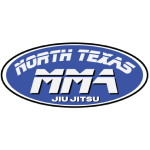Masters Athletes
Masters Athletes
Masters athletes are usually defined as individuals older than 35 who train for competitions in their sport. These competitions are formatted for such athletes, ensuring they compete with each other, rather than younger athletes who have not yet experienced the morbidity issues associated with the average 35-year-old’s cardiovascular system (which is another issue altogether and an indictment on the Western lifestyle). There is an increasing number of Masters Athletes in the population. The National Senior Games regularly has 10,000+ athletes over the age of 50 participating.
We’ve always had a number of Masters Athletes at NTMMA. They are some of our best coaches and students. Sometimes martial artists age into the Masters Athlete category. Other times, a person begins their martial arts training at age 50. In both cases, Masters Athletes must train differently than their 20-year-old training partners. There’s great research available on this topic. There’s also some really stupid recommendations on this topic, so be wise. Here is what we have learned is most important for our Masters Athletes.
Recovery
The Masters Athlete cannot recover like a young person. Whereas a young person can beat their body up in training and not eat or sleep particularly well for days at a time, the older athlete cannot. Recovery must be approached just as seriously as training. In fact, recovery is a part of training. All adaption occurs in a Stress-Recovery-Adaptation cycle. One subjects themselves to a non-lethal stress, the stress is recovered from, then the body adapts to handle that stress (meaning the athlete must up the stress next time if increased adaptation is the goal). For the Masters Athlete and all aging adults, the adaption we seek is to stave off death. We want to not die for as long as possible. We want to thrive for as long as possible. When the Masters Athlete subjects himself to a stress, he is wise to plan the recovery from that stress. A common saying about training is you don’t get strong from training; you get strong from recovering from training. Masters Athletes who do not plan for recovery from training are not reaching the goal of increased longevity, rather they are running toward an injury.
Strength
As humans age, we lose muscle mass and bone density unless we fight for it. The two are intertwined because the various systems of our body do not exist apart from each other. We know that calcium is an essential element for our bones. But calcium is also used throughout each muscle fiber to fire the muscle so you can move. As people get older, muscles do not work as efficiently as they once did. In some cases, the muscles will leech calcium from the bones to ensure they are able to continue functioning. This causes brittle bones that break easily. A simple fix to this loss is to add regular strength training to the Masters Athlete’s schedule. In martial arts, improving one’s technique and learning new techniques is always a top priority. But strength must be a health priority for older athletes in ways that younger ones cannot appreciate. If you want to stay mobile, independent, and able to do the activities you enjoy, make sure your muscles are in working order. Don’t worry. You won’t get bulky or look like a bodybuilder. You wouldn’t refuse to drive a car for fear of becoming a NASCAR racer. There’s no reason to leave strength training out of your life for fear of becoming a huge powerlifter.
Flexibility
Having full range of motion flexibility will protect you from potential injuries. This fact causes many people to overthink and overdo and overwork flexibility in their training. Flexibility is defined as full range of motion around a joint. So, if you are able to do a proper squat just below parallel, then you have a full effective range of motion in your hips. If you can perform jiujitsu techniques that require you to move your joints (which is just about everything), then you have sufficient flexibility for those motions. Don’t overthink it. You get flexibility from doing the things you want to do that require you to be flexible (like jiujitsu, kickboxing, and weight lifting). If you want to do yoga because it makes you feel good, then do it. But if you think you “need” yoga for full range of motion flexibility, then you need to reevaluate what a full effective range of motion is for your goals on the mat. If Masters Athletes regularly train and perform well, they have sufficient flexibility. So the answer to the flexibility problem is simple: keep training.
No matter what age you are, there’s a place for you at NTMMA. Our programs and facilities are equipped to meet all your training needs to achieve your goals. If you are an older athlete, or former athlete who wants to get back into training or never-been-an-athlete and wants to start, please come see us.
